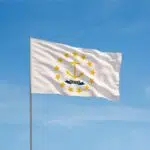Deaf Awareness Week takes place in the first full week of May. This year, it takes place from May 4 to 10. The purpose of this holiday is to increase public awareness about the issues affecting deaf people and deaf culture as a whole. Events and activities throughout Deaf Awareness Week encourage individuals to unite as a community for both educational and celebratory purposes.
It’s an important week for the recognition of deaf people, communities, and organizations. The week reminds the public that deaf people have their own communities, cultures, languages, and sign languages, which unite them. Deaf Awareness Week also aims to bring attention to the isolation that deaf people can occasionally experience, and heightens the importance of inclusion in the deaf community.
History of Deaf Awareness Week
From the earliest times, deaf people have formed communities whenever they come together in a specific geographic area. One example is the island of Martha’s Vineyard in the U.S., where a large population of deaf people lived in harmony from the 17th to the mid-20th century with their hearing counterparts. Sign language was widespread on the island, and deafness was an accepted part of life.
However, such communities were rare. In Europe, only a few religious leaders attempted to educate the deaf children of the nobility. In the 1540s, Spanish monk Pedro Ponce de León of the Benedictine order taught 10 to 12 other deaf people at his monastery. It is only in the 18th century that the state began sponsoring deaf education.
Education for the deaf in the early 19th century was largely religiously motivated. It was more focused on saving deaf people’s souls, to ensure that they were sufficiently trained to understand the word of God. Later in the century, the conversation shifted to training deaf people to become good national citizens.
Unfortunately in the 20th century, there was a suppression of sign language in schools. This led to the rise of clubs, associations, international organizations, and events that highlighted the plight of deaf communities. One of the most notable events is the Silent Games (also known as the World Games of the Deaf, or the Deaflympics), established in 1924. Such moves reminded the public that the deaf are healthy, vigorous, and modern individuals.
Today, deaf communities are politically organized on local, national, and international levels. Advancements in technology have brought about improved auditory enhancement devices and implants. This has resulted in a better quality of life for the deaf and hard of hearing.
Deaf Awareness Week timeline
America opens its first public school for the deaf.
Gallaudet University, the world’s first institution of higher education for the deaf and hard of hearing, is officially founded.
2,000 students of the Gallaudet University in Washington D.C., stage a protest, demanding majority deaf representation and a deaf president on the board of trustees.
Shirley Jeanne Allen becomes the first Black deaf woman in the U.S. to earn a doctoral degree.
Deaf Awareness Week FAQs
When does deafness occur?
Hearing loss and deafness can occur at birth or can happen at any age.
What causes hearing loss?
Several factors can cause hearing loss. These include aging, infections, exposure to loud noise, medications, head or ear trauma, diseases, congenital or genetic factors, and others.
How is hearing loss diagnosed?
A visit to an audiologist reveals the type and degree of hearing loss.
How to Observe Deaf Awareness Week
Attend deaf awareness events
There are numerous events and activities during this week. Film screenings, panel discussions, exhibitions, sign language concerts, games, and more, are excellent options for marking the holiday.
Take a sign language class
Learning sign language will help you understand the deaf community better. It's also a positive step towards a more inclusive society.
Donate to a supporting organization
Deaf and hard-of-hearing organizations and clubs benefit greatly from donations. Sending them a financial contribution will help them boost their noble causes.
5 Interesting Facts About Deafness
Second most common disability in the U.K.
Approximately 11 million people in the U.K. live with hearing loss.
International versions of sign language
There are international sign languages such as American Sign Language, British Sign Language, and French Sign Language.
Sign language varies by region
Within the UK, for instance, there are regional variations of BSL just as with spoken language.
Lip-reading is challenging
Even the most skilled lip-readers usually miss up to 40% of what has been said.
There are four levels of hearing loss
These are mild, moderate, severe, and profound.
Why Deaf Awareness Week is Important
It promotes the positive aspects of living with deafness
Deaf Awareness Week helps the public to better understand deaf culture. The holiday shows that deaf and hard-of-hearing people are just as capable and intelligent as hearing individuals.
We get to honor deaf people
During this week, we recognize the achievements of deaf people, including famous deaf individuals. Since deafness is an invisible disability, deaf people are usually overlooked. This holiday helps set things straight.
We learn about hearing loss
Deaf Awareness Week sheds more light on the types, degrees, and causes of hearing loss. We also get to learn how to manage the condition.
Deaf Awareness Week dates
| Year | Date | Day |
|---|---|---|
| 2024 | May 6–12 | Monday–Sunday |
| 2025 | May 5–11 | Monday–Sunday |
| 2026 | May 4–10 | Monday–Sunday |



































